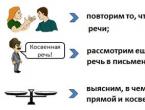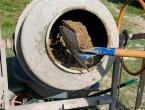Modified Bitumen. Modified bitumen and its modifiers. SBS Bitumen Modifiers: Benefits
All KATEPAL products are made from SBS-modified bitumen.
What is SBS-modified bitumen and what is its advantage?
In the production of soft tiles, manufacturers use various types of butum - these are oxidized, SBS-modified and other modified forms of bitumen.
High vacuum bitumen is obtained by additional processing at an additional processing stage in which still high boiling oils are separated. Oxidizing bitumen is produced in special reactors for blowing from soft distillate bitumen. When blowing in air at temperatures from 230 to 290 ° C, the softening temperature and the penetration of the needle change. Polymer modified bitumen is obtained by mixing and chemical combination of bitumen and polymers, for example.
Selected emissions from the production of 1 kg of bitumen. Refinery distillers are closed systems, therefore, a particular health risk cannot be expected. In addition to the risks associated with the transportation of oil, special risks are not expected in the production of bitumen.
To understand the differences between these species, let's take a closer look at each of them.
Raw natural bitumen has low heat resistance (below + 50 ° C), therefore, for the production of traditional bitumen materials apply oxidized bitumen. The oxidation process raises the heat resistance of bitumen to an acceptable level: air is passed through the heated bitumen. However, the oxidation process does not end there, it continues, but already on the roof. In fact, the technology of bitumen oxidation provokes the process of accelerated aging. Over time during storage and in operating conditions under the influence of sunshine and air oxygen, the composition and properties of bitumen vary. In them, the relative content of solid and brittle components increases and, accordingly, the number of oily and resinous fractions decreases, and therefore, brittleness and hardness increase. Bitumen becomes stiffer and crack even with minor deformations, after which it loses its water-resistant function.
Bitumen falls into the category of dangerous goods of class 9 of the international rules for the transport of dangerous goods. In many cases, occupational health risks and the environmental burden of processing bituminous and bituminous products are important. Especially when processing hot bitumen when fixing bitumen waterproofing membranes and when using cold bitumen or solvent-based chemicals with bitumen.
Pavement Modifiers
At the same time, however, it should be emphasized that bitumen is several orders of magnitude less dangerous than resin, and that bitumen no longer “mixes” with resin. Polycyclic hydrocarbons are most likely responsible for the carcinogenic potential of resin products. The following table shows the differences in carcinogenic potential between coal tar and bitumen.
For getting oil bitumen improved quality with the required operational properties, it is necessary to use and select the optimal quality of raw materials or modify the properties of oxidized bitumen with various additives. The main purpose of the modification is to obtain bitumen or materials based on them, which would allow to expand the plasticity interval of bitumen; to strengthen adhesion to metal and mineral materials; increase resistance to aging; provide colloidal and mechanical strength; expand the operating temperature range; ensure the environmental safety of the production and use of modified bitumen, etc. Many manufacturers use for this purpose APP- and PM- and other types of modifiers. These modifiers increase the quality of bitumen, heat resistance and other properties, but their materials are not as plastic as materials made using the SBS modifier.
Environmental and health impacts of the new state
Today, bitumen is no longer classified as carcinogenic.
- Block bitumen is not labeled.
- Health hazards depend on the content and type of solvent.
Risk of environment and health when used as directed
Long-term emissions of pollutants into the air should also be considered in domestic applications. The sealed mastic asphalt emissions were measured in some cases even after a long time, which could lead to odors in the cabin.In a changing climate, the roofing system undergoes constant deformation, and since it consists of different components (wood, metal, bitumen), each of its elements is deformed in different ways. In this regard, it is necessary to take into account how much the roof elements “stretch” and shrink from high, low temperatures and their differences, from moisture drops, how much they can return to their original form without losing their operational properties (that is, whether they have a return property) . Flexible tiles (in combination with a wooden rafter system in particular) should have the property of elasticity (stretch and contract under the influence of factors of our climate). It is for this purpose that it serves SBS Modified Bitumenon the basis of which the flexible tile KATEPAL is made.
Environmental and health risks in case of damage
Probably, the role of temperature is important here. Bitumen is fire resistant at normal temperature. However, hot bitumen requires measures against automatic ignition. Due to the composition and chemical structure, it is believed that the combustion gases are relatively toxic. Even when burned with a sufficient supply of oxygen, sulfur-containing flue gases are formed that are hazardous to health. Overheated or burning bitumen can also significantly contribute to the spread of fire.
SBS modifier (styrene-butadiene-styrene) added to bitumen is an artificial rubber that gives bitumen flexibility even in spite of the low temperature. SBS modifier actively affects the properties of bitumen, including reduces brittleness, increases elasticity, while elongation increases up to a hundred times, residual elongation decreases, fatigue properties improve, and therefore durability or service life. Flexibility Sbs bitumen able to reach 1500-2000%, which indicates good resistance to cyclic alternating loads. In the production of flexible tiles KATEPAL uses the latest advanced type of modifier - Second Generation SBS Modifier . This option of bitumen guarantees the highest quality, durability and strength of flexible tiles for any weather conditions - in hot summers, frosty winters, in conditions of frequent temperature drops through the zero mark.
Bitumen resistance is already relatively high due to history. Bitumen is especially resistant to aqueous alkalis, acids and salts. Unlike organic solvents, gasolines, or oils, it is not resistant to tar. Of course, bitumen is heat resistant without restriction. In the air and under the influence of light, bitumen becomes embrittle.
SBS Bitumen Modifiers: Benefits
For a holistic view, the relevant groups of building products should also be considered. The correct navigation menu contains links to assigned groups of construction objects. If you are in the construction products group, links to the designated basic materials may be displayed there.
Flexible tile from SBS-modified bitumen has several advantages compared to flexible tiles from other types of bitumen:
- Does not crack and remains flexible at low temperatures
- More flexible, strong and resistant to tearing under tension (“slipping”).
- It has a longer service life (including due to the ability to withstand constant temperature fluctuations)
- Allows for high-quality installation at low temperatures
- It has the best operational characteristics, especially in the conditions of the continental climate, characteristic of a large territory of Russia
Given all these advantages, a flexible tile made of SBS-modified bitumen is ideal for those who value quality and durability.
Bitumen recycling is mostly possible and is widely practiced in the form of asphalt. It is necessary to accept a certain loss of quality, therefore recycled asphalt is not used for the required surface layers in road construction. In the construction of buildings, the disposal of tar products hardly makes sense. Bituminous and bituminous products are firmly connected to other components and cannot be separated or only with great efforts into the sorted waste fraction. In addition, bitumen is currently a constantly available raw material and recycled asphalt; Reziklát's offer currently exceeds demand.




